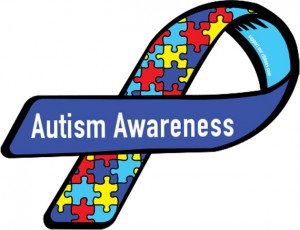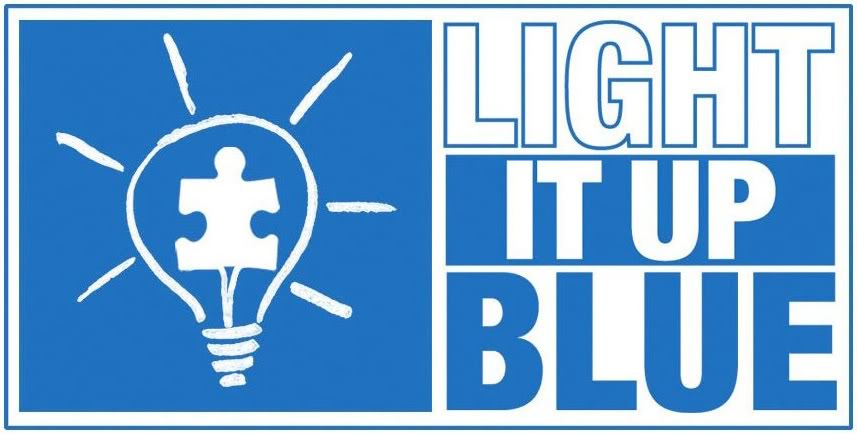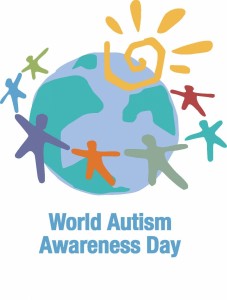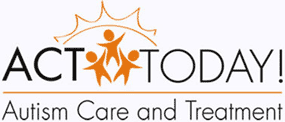Autism spectrum disorders (ASDs) are a group of developmental disabilities that can cause significant social, communication and behavioral challenges.
ASDs are “spectrum disorders” which means ASDs affect each person in different ways, and can range from very mild to severe. People with ASDs share some similar symptoms, such as problems with social interaction. But there are differences in when the symptoms start, how severe they are, and the exact nature of the symptoms.
Types of ASDs
There are three different types of ASDs:
- Autistic Disorder (also called “classic” autism)
This is what most people think of when hearing the word “autism.” People with autistic disorder usually have significant language delays, social and communication challenges, and unusual behaviors and interests. Many people with autistic disorder also have intellectual disability. - Asperger Syndrome
People with Asperger syndrome usually have some milder symptoms of autistic disorder. They might have social challenges and unusual behaviors and interests. However, they typically do not have problems with language or intellectual disability. - Pervasive Developmental Disorder – Not Otherwise Specified (PDD-NOS; also called “atypical autism”)
People who meet some of the criteria for autistic disorder or Asperger syndrome, but not all, may be diagnosed with PDD-NOS. People with PDD-NOS usually have fewer and milder symptoms than those with autistic disorder. The symptoms might cause only social and communication challenges.
Signs and Symptoms
ASDs begin before the age of 3 and last throughout a person’s life, although symptoms may improve over time. Some children with an ASD show hints of future problems within the first few months of life. In others, symptoms might not show up until 24 months or later. Some children with an ASD seem to develop normally until around 18 to 24 months of age and then they stop gaining new skills, or they lose the skills they once had.
A person with an ASD might:
- Not respond to their name by 12 months
- Not point at objects to show interest (point at an airplane flying over) by 14 months
- Not play “pretend” games (pretend to “feed” a doll) by 18 months
- Avoid eye contact and want to be alone
- Have trouble understanding other people’s feelings or talking about their own feelings
- Have delayed speech and language skills
- Repeat words or phrases over and over (echolalia)
- Give unrelated answers to questions
- Get upset by minor changes
- Have obsessive interests
- Flap their hands, rock their body, or spin in circles
- Have unusual reactions to the way things sound, smell, taste, look, or feel
Diagnosis
Diagnosing ASDs can be difficult since there is no medical test, like a blood test, to diagnose the disorders. Doctors look at the child’s behavior and development to make a diagnosis.
ASDs can sometimes be detected at 18 months or younger. By age 2, a diagnosis by an experienced professional can be considered very reliable. However, many children do not receive a final diagnosis until much older. This delay means that children with an ASD might not get the help they need.
Treatment
There is currently no cure for ASDs. However, research shows that early intervention treatment services can greatly improve a child’s development. Early intervention services help children from birth to 3 years old (36 months) learn important skills. Services can include therapy to help the child talk, walk, and interact with others. Therefore, it is important to talk to your child’s doctor as soon as possible if you think your child has an ASD or other developmental problem.
Even if your child has not been diagnosed with an ASD, he or she may be eligible for early intervention treatment services. The Individuals with Disabilities Education Act (IDEA) says that children under the age of 3 years (36 months) who are at risk of having developmental delays may be eligible for services. These services are provided through an early intervention system in your state. Through this system, you can ask for an evaluation.
In addition, treatment for particular symptoms, such as speech therapy for language delays, often does not need to wait for a formal ASD diagnosis.
Learn about types of treatments »
Causes and Risk Factors
We do not know all of the causes of ASDs. However, we have learned that there are likely many causes for multiple types of ASDs. There may be many different factors that make a child more likely to have an ASD, including environmental, biologic and genetic factors.
- Most scientists agree that genes are one of the risk factors that can make a person more likely to develop an ASD.
- Children who have a sibling or parent with an ASD are at a higher risk of also having an ASD.
- ASDs tend to occur more often in people who have certain other medical conditions. About 10% of children with an ASD have an identifiable genetic disorder, such as Fragile X syndrome, tuberous sclerosis, Down syndrome and other chromosomal disorders.
- Some harmful drugs taken during pregnancy have been linked with a higher risk of ASDs, for example, the prescription drugs thalidomide and valproic acid.
- We know that the once common belief that poor parenting practices cause ASDs is not true.
- There is some evidence that the critical period for developing ASDs occurs before birth. However, concerns about vaccines and infections have led researchers to consider risk factors before and after birth.
ASDs are an urgent public health concern. Just like the many families affected in some way by ASDs, CDC wants to find out what causes the disorder. Understanding the risk factors that make a person more likely to develop an ASD will help us learn more about the causes. We are currently working on one of the largest U.S. studies to date, called Study to Explore Early Development (SEED). SEED is looking at many possible risk factors for ASDs, including genetic, environmental, pregnancy, and behavioral factors.
Who is Affected
ASDs occur in all racial, ethnic, and socioeconomic groups, but are almost five times more common among boys than among girls. CDC estimates that about 1 in 88 children has been identified with an autism spectrum disorder (ASD).
More people than ever before are being diagnosed with an ASD. It is unclear exactly how much of this increase is due to a broader definition of ASDs and better efforts in diagnosis. However, a true increase in the number of people with an ASD cannot be ruled out. We believe the increase in ASD diagnosis is likely due to a combination of these factors.
Within the past decade, CDC’s Autism and Developmental Disabilities Monitoring (ADDM) Network has been estimating the number of people with an ASD in the U.S. We have learned a lot about how many children in the U.S. have an ASD. It will be important to use the same methods to track how the number of people with an ASD is changing over time in order to learn more about the disorders.
If You’re Concerned
If you think your child might have an ASD or you think there could be a problem with the way your child plays, learns, speaks, or acts,contact your child’s doctor, and share your concerns.
If you or the doctor is still concerned, ask the doctor for a referral to a specialist who can do a more in-depth evaluation of your child. Specialists who can do a more in-depth evaluation and make a diagnosis include:
- Developmental Pediatricians (doctors who have special training in child development and children with special needs)
- Child Neurologists (doctors who work on the brain, spine, and nerves)
- Child Psychologists or Psychiatrists (doctors who know about the human mind)
At the same time, call your state’s public early childhood system to request a free evaluation to find out if your child qualifies for intervention services. This is sometimes called a Child Find evaluation. You do not need to wait for a doctor’s referral or a medical diagnosis to make this call.
Where to call for a free evaluation from the state depends on your child’s age:
- If your child is not yet 3 years old, contact your local early intervention system.You can find the right contact information for your state by calling the National Dissemination Center for Children with Disabilities (NICHCY) at 1-800-695-0285.Or visit the NICHCY website. Once you find your state on this webpage, look for the heading “Programs for Infants and Toddlers with Disabilities: Ages Birth through 3″.
- If your child is 3 years old or older, contact your local public school system.Even if your child is not yet old enough for kindergarten or enrolled in a public school, call your local elementary school or board of education and ask to speak with someone who can help you have your child evaluated.If you’re not sure who to contact, call the National Dissemination Center for Children with Disabilities at 1.800.695.0285 or visit the NICHCY website. Once you find your state on this webpage, look for the heading “Programs for Children with Disabilities: Ages 3 through 5″.
Research shows that early intervention services can greatly improve a child’s development. In order to make sure your child reaches his or her full potential, it is very important to get help for an ASD as soon as possible.





